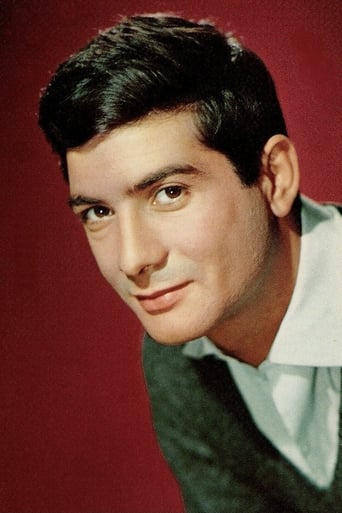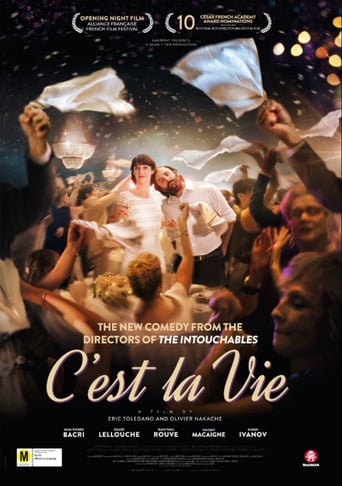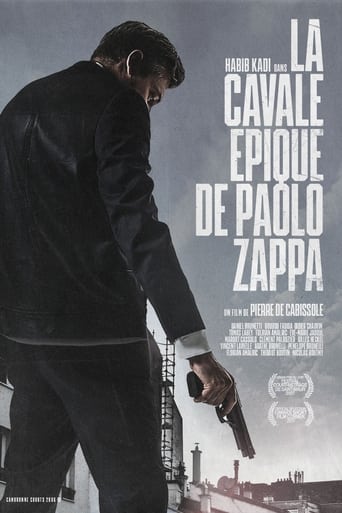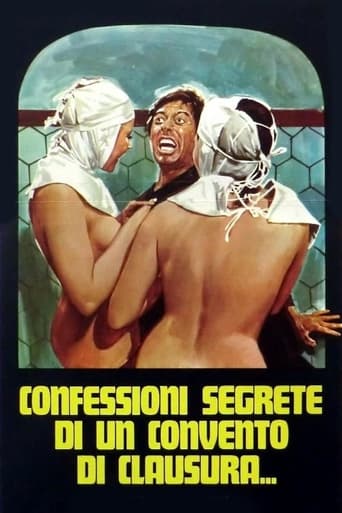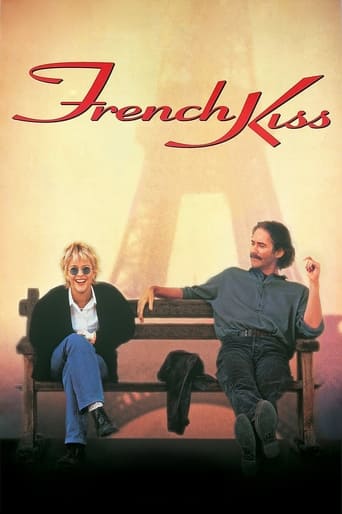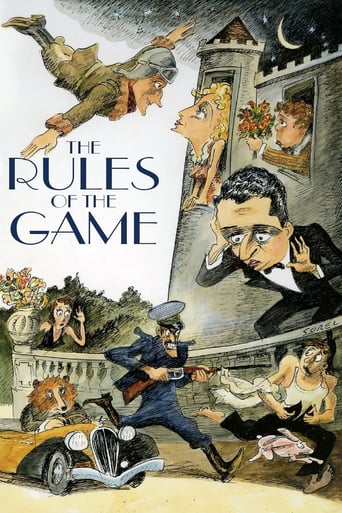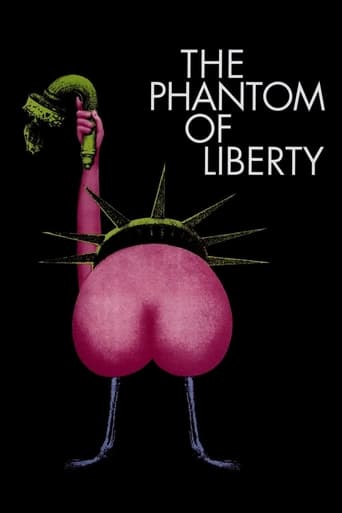
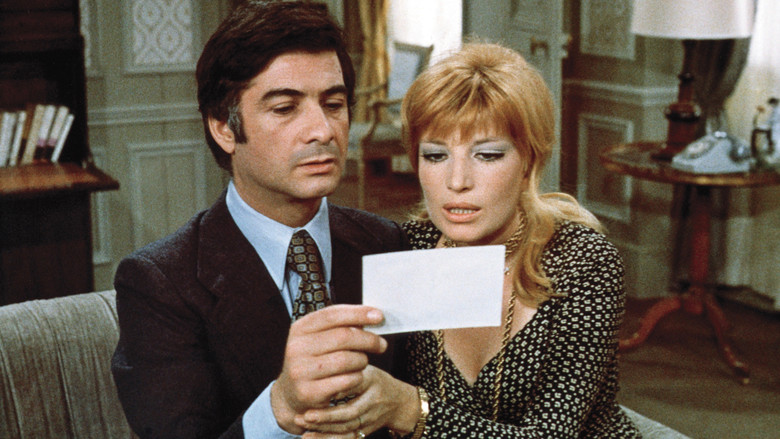
The Phantom of Liberty (1974)
This Surrealist film, with a title referencing the Communist Manifesto, strings together short incidents based on the life of director Luis Buñuel. Presented as chance encounters, these loosely related, intersecting situations, all without a consistent protagonist, reach from the 19th century to the 1970s. Touching briefly on subjects such as execution, pedophilia, incest, and sex, the film features an array of characters, including a sick father and incompetent police officers.
Watch Trailer
Cast


Similar titles
Reviews
Luis Bunuel's late run of films is one of my favourite streaks by any filmmaker - I don't know that anyone else ever achieved such sustained, unmediated self-expression, marked by such unfussy cinematic elegance. The Phantom of Liberty is a consistent astonishment, fundamentally a loosely-linked collection of sketches, all of which challenge some aspect of convention or perception - in its most famous bit, the guests at a dinner party sit on lavatories around the table and discreetly absent themselves to eat in private. Its sequences subtly vary in their relationship to reality: in some cases providing a relatively simple reversal of expectations (the "dirty pictures" revealed as mere tourist postcards); in others savagely firing at religious sanctimony (monks who embrace booze, smokes and poker but recoil from sexual display); in others suggesting a mass breakdown in perception (a little girl who everyone counts as disappeared, even as they acknowledge her continuing presence); an episode involving a call from a dead sister gives the dislocation a psychic dimension. The film belongs securely to the living rooms and fancy offices of the bourgeoisie, except that suddenly Bunuel shows us a mass shooter gunning down random victims, and we're dropped into real streets and markets and cafes, into real disruption (of a kind of course that doesn't seem dated at all), and it's clear how the film isn't just a semi-affectionate ribbing, but rather a suggestion of a malaise spreading out from the establishment, a toxic discharge from so much self-absorption and self-congratulation and under-examined reliance on hypocritical moral precepts, of a kind that brings us down whether we know it or not (the film's most pointed political dialogue actually addresses the environmental consequences of increasing population). Phantom doesn't feel revolutionary or anarchic - it's too comfortable with its settings and people for that - but it's never complacent, wondrously ventilated by Bunuel's timeless assurance.
At first viewing, this is a movie that will be difficult to understand. Luis Bunuel's surrealist masterpiece is by no means an easy film to digest for Western audiences. It is seemingly disjointed, schizophrenic and unclear, but do not let that prevent you from viewing it. It will leave you thinking, if not anything else.In a series of stories that appear to have nothing to do with each other, we are being taken on a tale that is attempting to prove to the audience what happens when society has unrestricted freedom. The film in itself is a treatise on this type of freedom – the way it is filmed and constructed is meant to be without conventional restraints. In that sense, it is a definitive work of meta-fiction. Every scene in this story is meant to challenge conventional thinking and what we perceive to be societal norms. Bunuel, with each scene and character, is challenging the form of story in film itself. Where one scene and character(s) start and seemingly end with no clear conclusion, another ones starts by the actions of a character and carries over into an entirely different scene and set of circumstance. It's like a mix of Inception, which I won't claim to understand, and films like Crash and Babel – where stories and characters all interact with each other. What makes Phantom of Liberty so unique is that there is no standard ending. The characters we see don't always have finite conclusions to their stories. Often times, they just go off-screen and never appear again. But their message and the social commentary/implications of the scene and character has already been made. There is no need to connect to the characters to figure out the intentions/meaning or to be spurred to dig deeper about the implications of the random stories – Bunuel makes more of a commentary on society in a 15 minute scene with five random characters thrown together in a seemingly absurd situation than some directors do in their entire careers over multiple films. Not everyone will understand it, or get it, or appreciate it, but it is the undisputed masterpiece of the surrealistic genre. I personally give this film a 6 or 7 when it comes to entertainment value, but it is near perfect in its innovation and style.
The Phantom of Liberty movie show to me how important surrealism is in order to make a movie successful. It really made me feel that I was leaving it while it was been played, but also it goes beyond reality because in the scenes what the characters where doing was something unexpected, weird, not normal, or perhaps disrespectful if someone sees it that way. Moreover, we're not used to lived that way. We see the world differently and we manage personal y private things differently. In fact what really catch my attention was the scene where they all sit together to "eat". It wasn't really like that, it was the opposite, they suppose to eat instead of doing their needs. That really make laugh in a way because I can't imagine myself doing that. In other hand, The phantom of Liberty was really a piece of art even thought it got me kind of confuse. This is a film where you can start asking question to yourself and building all this thoughts and ideas. This is where you can see a real director, art and high level of thinking of Buñuel.
I felt like the movie was very enjoyable but very confusing plot wise. If I watched the movie without any prior knowledge of it I probably would of thought it was a bunch of randomly scattered skits, or a day in the life of an alternate universe. It had me in suspense the whole time. I never knew where it was going to go, or which character the camera was going to follow. The acting made it feel as if that was actual life and not a joke. As if it was possible as a serious series of events. My favorite scenes where with the police and how they were very hypocritical and childish. Showed a different view of police than the respectable flawless man.




